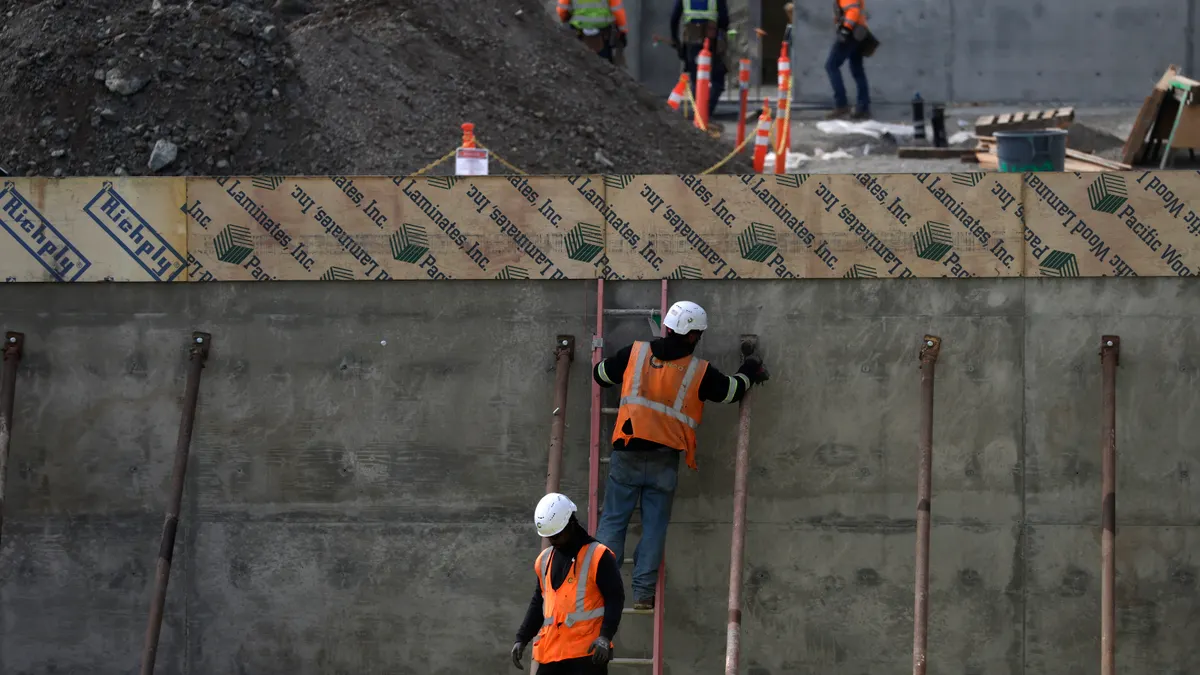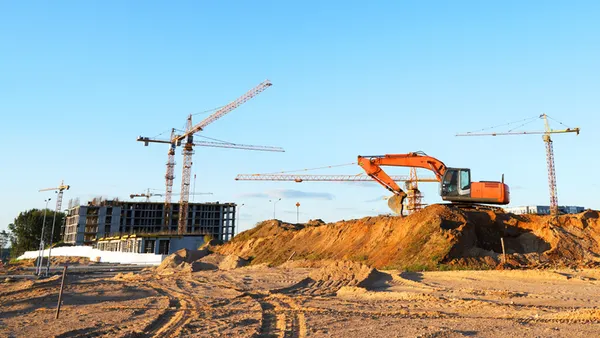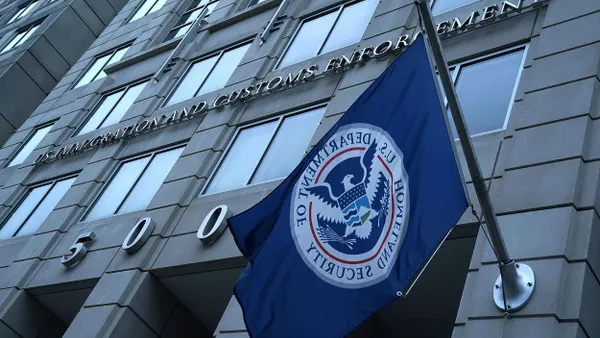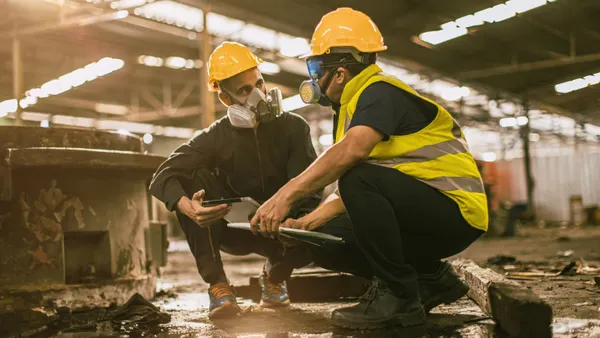Editor’s note: This story focuses on the topic of mental health and suicide. If you or someone you know is having suicidal thoughts, call the National Suicide Prevention Lifeline at 988.
Dive Brief:
- Anxiety and depression are rising among construction workers, highlighting the industry’s mental health crisis, according to a Thursday webinar from CPWR – The Center for Construction Research and Training tied to Construction Suicide Prevention Week.
- From 2018 to 2024, reported anxiety among construction workers grew from 12.6% to 18.4%, alongside an uptick in depression as well, from 7.7% to 8%, said Derek Dufoe, research assistant at CPWR. At the same time, the share of workers who said they needed mental health care but could not afford it nearly tripled, from 2% to 5.6%.
- The discussion focused on the toll of suicide and overdoses on jobsites and the urgent need for workplace interventions. CPWR urged contractors to use tools such as resilience training and opioid awareness programs, as well as to normalize conversations about mental health in the field.
Dive Insight:
The findings arrive as construction struggles with one of the highest suicide rates of any industry, according to the Centers for Disease Control and Prevention.
In 2023 alone, about 5,000 construction worker deaths by suicide and nearly 16,000 overdoses occured, said Amber Trueblood, data center director at CPWR.
Panelists emphasized cultural change is as critical as data tracking. For example, workers are often more willing to help peers than to seek help themselves, said Trueblood. That could be a powerful entry point.
“The more you encourage [construction workers] to engage with their coworkers and be a friend and be the helper, then I think that breaks down some barriers,” said Trueblood during the event. “The more they talk amongst themselves about it, and the more they try to help their coworkers, the more likely they will be down the road to seek help if they need it.”
Many construction workers face long hours away from family, in addition to chronic pain or production pressure, said Chris Trahan Cain, executive director at CPWR. These factors then often intersect with opioid prescriptions.
For that reason, CPWR is pushing resources such as physician alerts and alternative pain-management guides, as well as the organization’s Mental Health Resilience Training, which has nine discussion-based modules and bilingual toolbox talks. The group also co-branded industry guidelines on suicide prevention language and offers downloadable infographics for both workers and employers.
“It’s intended to help construction workers speak to their doctors about occupational-related pain, and when they speak to their doctors, how to request medicines for pain that don’t include opioids,” said Trahan Cain. “We call this a really great example of an intervention that happens before any kind of dependency could ever form.”
Construction firms are taking action as well. Reston, Virginia-based Bechtel recently launched its Hard Hat Courage initiative with the American Foundation for Suicide Prevention, a $7 million effort that pairs toolbox talks and a crisis-response toolkit. The goal is to reach 500,000 workers nationwide over the course of five years.















